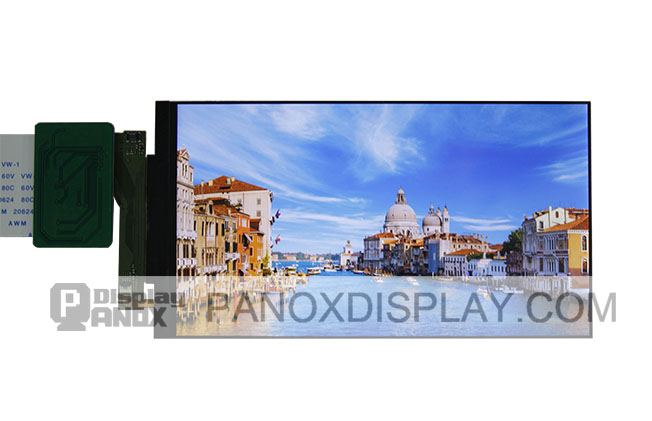3D Printing technology is a powerful technology that is leading significant changes in many areas. 3D Printing could be defined as a process of creating an object by printing each sliced section layer by layer until finishing a completed object.

Different from the other 3D Printing technologies(DLP and SLA), LCD 3D printing is nearly the same as DLP, but at a lower cost. It also flashes complete layers at the resin tank, but with the UV light coming from an array of LEDs shining through an LCD, not a projector. A screen acts as a mask, revealing only the pixels necessary for the current layer. As such, no special device is required to direct the light, as is the case in both SLA and DLP.

The Anycubic photon 3D printer is using a Sharp 5.5 inch 2560x1440 2K LCD, its fineness is twice of a 1080x720 printer, and 10 times of FDM 400um.

LCD 3D printers use an array of UV LCDs as a light source. The light from the flat LCD panels shines directly, in a parallel array, onto the build area. Because this light isn’t expanded, pixel distortion is less of an issue with LCD printing.

Now, many 3D printing companies are mostly using Sharp 5.5 LCD for LCD Masking 3D printers, the Sharp 5.5 inch 2K LCD can resist 405nm near ultraviolet for hundreds of hours, the printers models include Wanhao, KLD1260, YLD01, and Zhiyao, Easy3d, Photon, etc.
Related: Latest LCD Display Panels For 3D Printers
Compare to traditional 3D Printing technology, LCD Masking has advantages as follows,
1. Low cost
2. Simple structure
3. Commonly used resin. (Because of the 405nm backlight, most of the DLP resin can be compatible)
4. High speed to print many parts at the same time.
Most of the LCDMasking technology need to remove the backlight of LCD, now the new VLC (visible light cure), totally abandons ultraviolet condition, and use normal light(405nm~600nm) to cure resin
OLO is the first VLC 3D printer through mobile light to cure.

What this means is that the print quality of an LCD printer depends on its LCD density. The more pixels it has, the better the print quality.
Sharp and JDI high-resolution LCDs have high transmittance and contrast, so the 2K resolution of Sharp, and JDI LCDs are widely used in the 3D printing industry. The material object printed through Sharp and JDI LCDs will be more smooth and more sophisticated without flaws.
For some industrial-level 3D printers, it needs a larger 2K LCD, Panox Display can supply 10.1 2K LCD for it.
The following are some 2K LCDs for 3D Printing applications,
According to our experience with LCD 3D Mask customers, they need to remove the backlight when using it.Panox Display can provide 2K LCD without a backlight and laminate professional translucent cover glass as follows,


How Do LCD 3D Printers Work?
Different from the other 3D Printing technologies(DLP and SLA), LCD 3D printing is nearly the same as DLP, but at a lower cost. It also flashes complete layers at the resin tank, but with the UV light coming from an array of LEDs shining through an LCD, not a projector. A screen acts as a mask, revealing only the pixels necessary for the current layer. As such, no special device is required to direct the light, as is the case in both SLA and DLP.

The Anycubic photon 3D printer is using a Sharp 5.5 inch 2560x1440 2K LCD, its fineness is twice of a 1080x720 printer, and 10 times of FDM 400um.

LCD 3D printers use an array of UV LCDs as a light source. The light from the flat LCD panels shines directly, in a parallel array, onto the build area. Because this light isn’t expanded, pixel distortion is less of an issue with LCD printing.

Now, many 3D printing companies are mostly using Sharp 5.5 LCD for LCD Masking 3D printers, the Sharp 5.5 inch 2K LCD can resist 405nm near ultraviolet for hundreds of hours, the printers models include Wanhao, KLD1260, YLD01, and Zhiyao, Easy3d, Photon, etc.
Related: Latest LCD Display Panels For 3D Printers
Advantages Of LCD Masking For 3D Printers
Compare to traditional 3D Printing technology, LCD Masking has advantages as follows,
1. Low cost
2. Simple structure
3. Commonly used resin. (Because of the 405nm backlight, most of the DLP resin can be compatible)
4. High speed to print many parts at the same time.
Most of the LCDMasking technology need to remove the backlight of LCD, now the new VLC (visible light cure), totally abandons ultraviolet condition, and use normal light(405nm~600nm) to cure resin
OLO is the first VLC 3D printer through mobile light to cure.

What this means is that the print quality of an LCD printer depends on its LCD density. The more pixels it has, the better the print quality.
Sharp and JDI high-resolution LCDs have high transmittance and contrast, so the 2K resolution of Sharp, and JDI LCDs are widely used in the 3D printing industry. The material object printed through Sharp and JDI LCDs will be more smooth and more sophisticated without flaws.
For some industrial-level 3D printers, it needs a larger 2K LCD, Panox Display can supply 10.1 2K LCD for it.
Where To Buy LCD panels For 3D Printers?
The following are some 2K LCDs for 3D Printing applications,
According to our experience with LCD 3D Mask customers, they need to remove the backlight when using it.Panox Display can provide 2K LCD without a backlight and laminate professional translucent cover glass as follows,






















